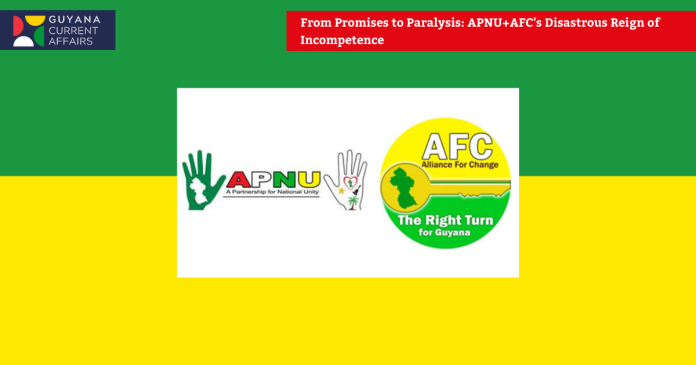In the annals of Guyanese politics, few chapters are as dark as the APNU+AFC coalition’s 2015-2020 tenure. What began with promises of a “good life” ended in a quagmire of incompetence and missed opportunities.
The coalition’s governance was marked by a staggering disconnect between rhetoric and reality. While they trumpeted transparency, their actions spoke of opacity and self-interest. The infamous Sussex Street drug bond scandal stands as a testament to their duplicity, a brazen display of cronyism that cost taxpayers millions.
Perhaps most damning was their handling of Guyana’s nascent oil industry. As the nation stood on the cusp of transformative wealth, APNU+AFC fumbled negotiations, potentially costing future generations billions in lost revenue. Their lack of foresight in preparing for the oil economy’s challenges was nothing short of negligent.
The coalition’s economic stewardship was equally dismal. Despite inheriting a growing economy, they managed to slow progress to a crawl. Their fiscal policies seemed designed more to benefit party loyalists than to stimulate broad-based growth.
But it was their assault on democratic norms during the 2020 elections that will likely define their legacy. Their attempts to subvert the will of the people brought Guyana to the brink of constitutional crisis, tarnishing the nation’s image on the global stage.
In the final analysis, the APNU+AFC’s tenure was not merely a failure of governance, but a betrayal of the trust placed in them by the Guyanese people. As Guyana moves forward, the coalition’s reign will serve as a stark reminder of the perils of entrusting power to those who prioritize self-interest over national development.


